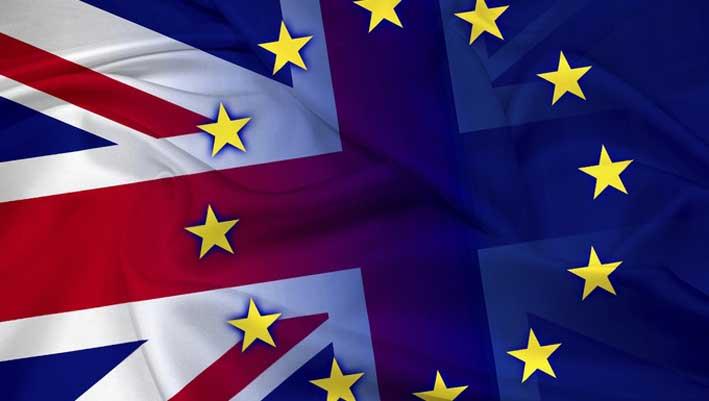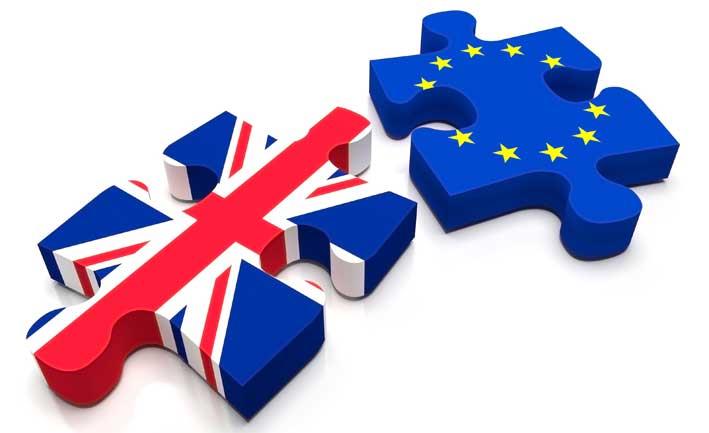Britain, the European Union is coming for your bananas. And your kettles. Meanwhile, foreign criminals roam Britain's streets and migrants besiege its borders.
That, at least, is the impression conveyed by some British newspapers as voters prepare to decide whether to remain in the European Union.
Much of the British press views the EU as a meddlesome nuisance, showering the country in bureaucratic directives and sapping its sovereign power. Add public concern about mass immigration and the migrant crisis, and it means Britain's EU referendum campaign is being waged amid a perfect storm of Euroskepticism.
The tabloid Daily Express recently warned that "Migrants pay just 100 pounds to invade Britain" and claimed the EU is a "threat to your pension" and even wants "to ban our kettles." The Daily Mail has told readers that "1M more migrants are on their way" and profiled "the Albanian double killer" living openly in Britain.

Strident anti-EU headlines are commonplace across a spectrum of British newspapers, from the tabloid Sun, Express and Daily Mail to the higher-toned Times and the Conservative-backing Daily Telegraph. Of Britain's dozen or so national dailies, only the left-leaning Guardian and the business-minded Financial Times are firmly on the "remain" side of the EU debate.
British broadcasters are governed by rules about impartiality in their political coverage, but the rambunctious, partisan press has no such shackles. British newspapers have spent decades shaping the battlefield on which the referendum fight is being waged.
The last time Britain voted on its membership in the bloc, in 1975, almost all newspapers in the United Kingdom were pro-"remain." But since the 1980s, as the EU has grown bigger and more centralized, the British press has become ever-more hostile — sometimes crudely so, as in the Sun's famous 1990 headline "Up yours, Delors," directed at European Commission President Jacques Delors.
Oliver Daddow, senior lecturer in politics at Nottingham Trent University, says years of slanted reporting on the EU means that "in a sense, all Brits are now Euroskeptics."
Some media claims about the EU have almost become folk myths, like the allegation that Brussels tells Britons what kind of bananas they can buy — a charge recently repeated by "leave"-supporting former London Mayor Boris Johnson, a former Brussels correspondent for the Daily Telegraph. (The EU does, in fact, specify that bananas must be free from "abnormal curvature.")
The Telegraph recently reported the EU planned a "kettle and toaster crackdown" to ban high-powered small appliances under environmental regulations. The paper claimed the move had been postponed until after June 23 lest it be seen as "an assault on the British staples of tea and toast." (The EU is considering new regulations for energy-consuming appliances, but no new law has been introduced yet.)

Britain's newspapers also have a tendency — mystifying to many other Europeans — of viewing European affairs through the lens of World War II.
The Sun has depicted Prime Minister David Cameron as a hapless wartime Home Guard officer bracing for invasion from the continent, in a nod to the sitcom "Dad's Army." Johnson, picking up the theme, recently compared the centralizing aims of the EU to those of Adolf Hitler.
Despite the hyperbole and hysteria, Roy Greenslade, professor of journalism at London's City University, thinks newspapers are "preaching to the converted" and will have little impact on the outcome of the June 23 referendum.
Britain's papers have long boasted of their political clout, epitomized in the claim by Rupert Murdoch's Sun after an unexpected Conservative victory in the 1992 election: "It's the Sun wot won it."
Now, though, their circulations are plummeting, their readers aging. Britons under 40 — the most pro-EU segment of the population — are also the least likely to read daily newspapers.
Greenslade said newspaper readership is "old, white working class in the case of the Sun and the Express, and old, white middle class in the case of the Daily Telegraph," and the papers "are basically telling people what they already want to hear."
That doesn't stop politicians courting the papers, eager for their endorsement. Greenslade sees such behavior as a hangover from a bygone age.
"Politicians go out of their way to feed the daily news agenda — to rebut what's in the papers, meet the editors, court the owners," he said. "It's like a strange echo chamber. They read the papers so they think everyone else does, too."
The echo-chamber effect is not limited to traditional media. Clare Llewellyn, a University of Edinburgh researcher studying the way Twitter is being used in the referendum campaign, says many people use social media to reinforce their opinions rather than seek new information.
"You find what you want to find," she said, "That's true in all social media, in reading blogs, even in reading newspapers online."
The power of the media may be waning, but Daddow says the Euroskeptic atmosphere the press helped create will endure even if Britain stays in the EU.
"If you are constantly fed a diet of immigration, sovereignty, identity, the Germans are all nasty ... it must have an effect," he said.
"If I was a U.K. politician, I wouldn't see it as a good career move to be an open pro-European."